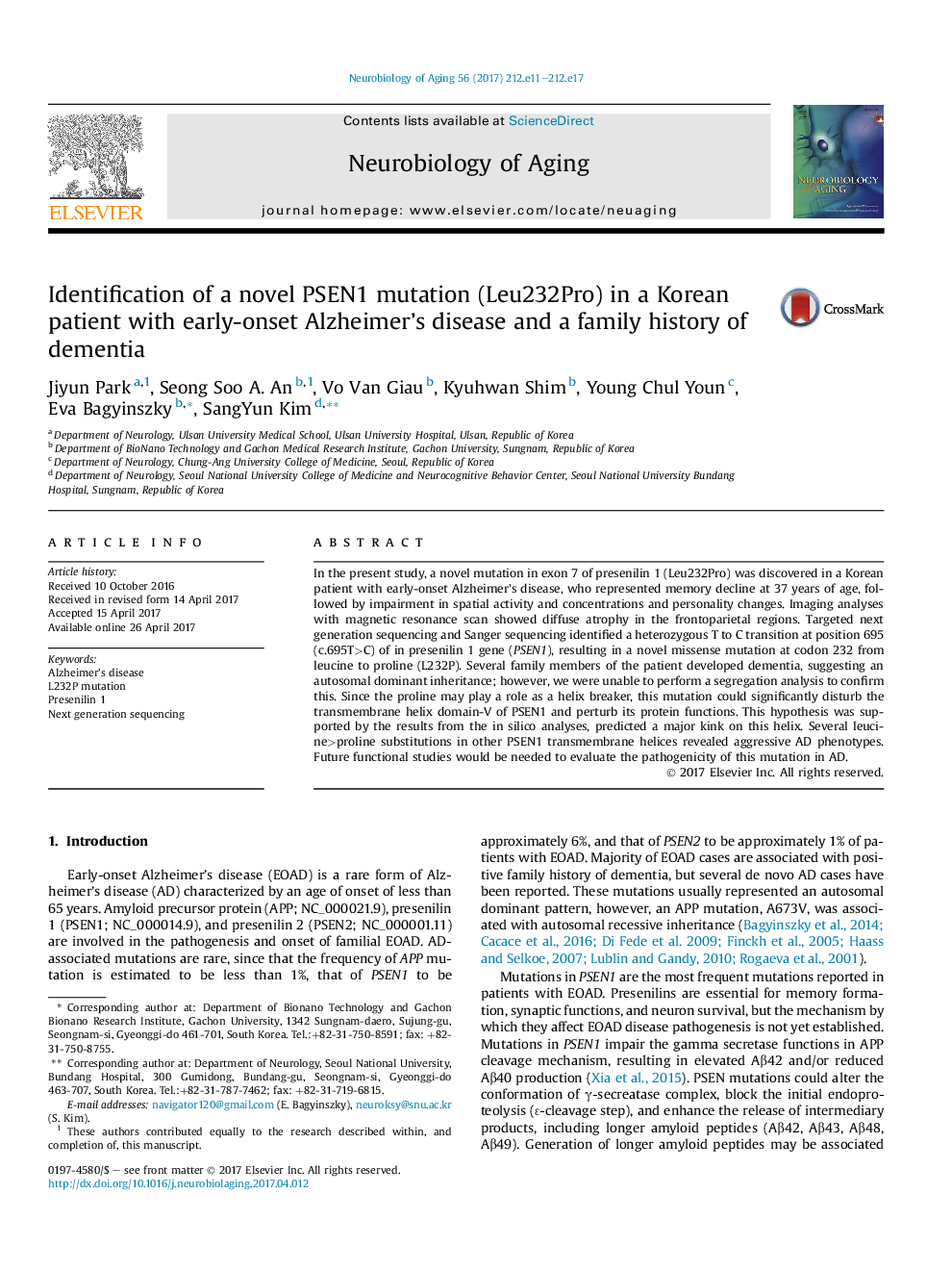| Article ID | Journal | Published Year | Pages | File Type |
|---|---|---|---|---|
| 4932732 | Neurobiology of Aging | 2017 | 7 Pages |
In the present study, a novel mutation in exon 7 of presenilin 1 (Leu232Pro) was discovered in a Korean patient with early-onset Alzheimer's disease, who represented memory decline at 37Â years of age, followed by impairment in spatial activity and concentrations and personality changes. Imaging analyses with magnetic resonance scan showed diffuse atrophy in the frontoparietal regions. Targeted next generation sequencing and Sanger sequencing identified a heterozygous T to C transition at position 695 (c.695T>C) of in presenilin 1 gene (PSEN1), resulting in a novel missense mutation at codon 232 from leucine to proline (L232P). Several family members of the patient developed dementia, suggesting an autosomal dominant inheritance; however, we were unable to perform a segregation analysis to confirm this. Since the proline may play a role as a helix breaker, this mutation could significantly disturb the transmembrane helix domain-V of PSEN1 and perturb its protein functions. This hypothesis was supported by the results from the in silico analyses, predicted a major kink on this helix. Several leucine>proline substitutions in other PSEN1 transmembrane helices revealed aggressive AD phenotypes. Future functional studies would be needed to evaluate the pathogenicity of this mutation in AD.
